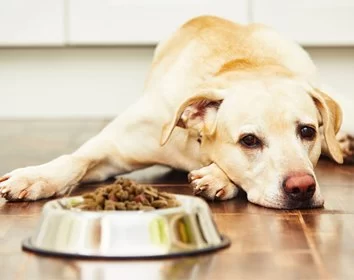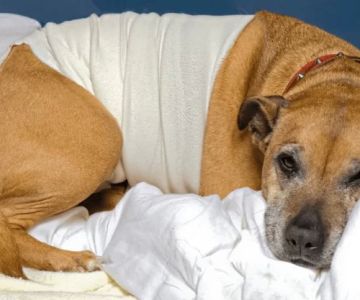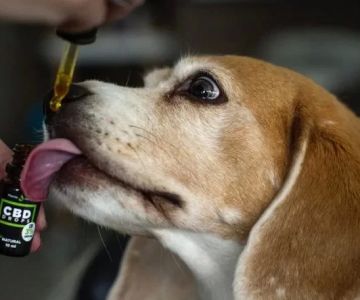Why Your Dog Is Not Eating Treats Anymore: Behavioral and Health Insights
1. Introduction to Changes in Your Dog's Treat Habits
As dog owners, we often associate treats with positive reinforcement and a fun bonding time with our pets. However, it can be concerning when your dog suddenly stops eating treats they used to enjoy. This behavioral change may be temporary, but it can also be indicative of underlying health issues. Understanding why your dog is not eating treats anymore is crucial for ensuring their well-being and addressing potential health concerns early on.
2. Common Reasons Why Dogs Stop Eating Treats
There are various reasons why a dog might refuse to eat treats, and these reasons can range from behavioral shifts to medical conditions. Here's an overview of the most common causes:
2.1 Dental Problems and Pain
Dental health plays a significant role in a dog's overall well-being. If your dog is avoiding treats, it might be due to dental issues such as gum disease, tooth decay, or even a painful abscess. Dogs may find it difficult or painful to chew hard treats if they have dental problems, leading them to avoid them altogether. Regular checkups and proper oral hygiene are essential to prevent such issues.
2.2 Changes in Appetite Due to Aging
As dogs age, their metabolism and appetite can change. Older dogs might become less interested in treats due to a decrease in their sense of smell or taste, making treats less enticing. Aging can also lead to underlying health conditions like arthritis or decreased energy, which might make them less motivated to eat. It's important to monitor any changes in their eating habits and consult a vet if you notice significant changes.
2.3 Stress and Anxiety
Stress and anxiety are common causes for changes in eating habits, not just in humans but also in dogs. A change in routine, a new environment, or separation anxiety can cause a dog to lose interest in treats. If your dog is stressed, their appetite may decline, and they may avoid even their favorite foods. In such cases, addressing the source of the anxiety and providing a calm, stable environment can help.
2.4 Illness and Medical Conditions
When a dog stops eating treats, it could be a sign of an underlying medical condition. Common issues like gastrointestinal problems, infections, or even more serious conditions like kidney disease or cancer can lead to a reduced appetite. If your dog’s refusal to eat treats is accompanied by other signs of illness, such as lethargy, vomiting, or weight loss, it’s crucial to take them to the vet for a thorough checkup.
2.5 The Treat Itself: Quality and Flavor
Sometimes, the issue may be simpler than health concerns. Dogs, like people, can develop preferences for certain flavors or types of treats. If your dog suddenly refuses a specific treat, it could be that the flavor or texture no longer appeals to them. Try switching up the type of treat or offering a variety to see if your dog shows a preference for a different flavor.
3. How to Address Your Dog's Lack of Interest in Treats
When your dog stops eating treats, it's important to address the root cause. Below are steps you can take to resolve the issue and encourage your dog to enjoy their treats once more:
3.1 Visit the Veterinarian
If you suspect that your dog’s refusal to eat treats is due to a health issue, the first step should always be a visit to the veterinarian. A professional examination can help rule out any medical conditions such as dental problems, infections, or digestive issues that might be contributing to their disinterest in treats. Your vet can provide guidance on treatment options or recommend dietary changes based on your dog’s needs.
3.2 Make Treat Time a Positive Experience
Sometimes, behavioral issues like stress or anxiety can make dogs less interested in treats. Creating a calm, positive environment during treat time can help your dog feel more relaxed and engaged. Use treats as rewards during training sessions or as part of a fun activity to reinforce positive behaviors and increase excitement around treat time.
3.3 Offer Fresh, High-Quality Treats
If your dog is a picky eater, it may be time to experiment with different types of treats. Choose high-quality, nutritious treats that are made from wholesome ingredients. You can try offering softer treats or treats with different textures to see if your dog shows interest. Offering treats that are both tasty and nutritious will ensure they are more appealing to your dog.
3.4 Monitor Your Dog's Overall Health
It's essential to keep track of your dog’s overall health, as a sudden lack of interest in treats can be indicative of an underlying issue. Regular checkups, maintaining a balanced diet, and observing any behavioral changes will help you stay on top of your dog’s health. If the problem persists or worsens, don't hesitate to consult a professional.
4. Conclusion
While it can be concerning when your dog stops eating treats, understanding the reasons behind this change is essential for addressing the issue. Whether it’s due to health problems, stress, or simply a shift in preferences, there are steps you can take to ensure your dog is happy, healthy, and still enjoys their favorite snacks. Keep an eye on any other signs that may indicate an issue, and consult your vet for further guidance when needed.
For more expert advice on pet health and nutrition, or to find the best treats for your dog, visit Hidden Brook Veterinary today.












